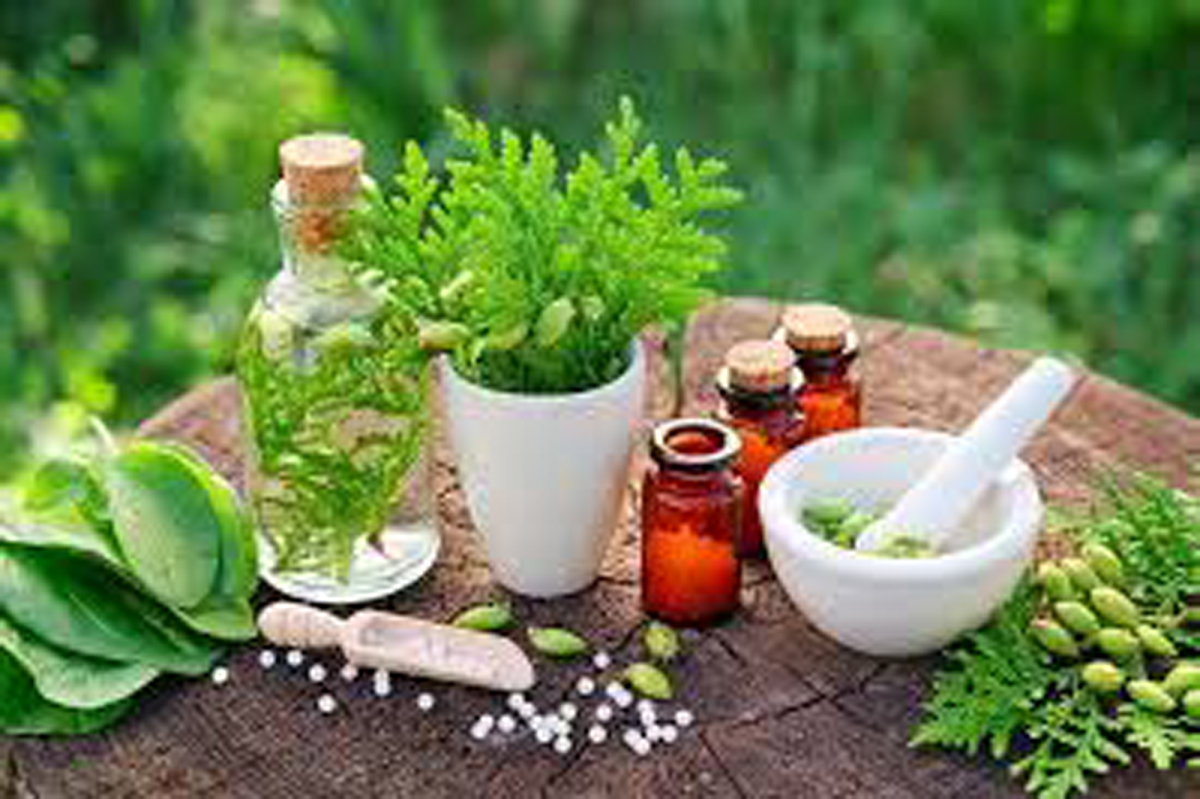Shahnaz Husain
Over centuries of usage, it has been seen that herbs have many beneficial properties for both health and beauty. Herbs also have powerful healing properties. In fact, they have definite protective, preventive and corrective actions. They also contain vitamins, minerals, enzymes and other valuable substances, which are important for the health and beauty of the skin and hair.
Basil, or Tulsi is commonly used for many ailments in most homes. In fact, it is said to help colds and coughs, which are common during winter. It also has soothing and curative actions on the skin and scalp. Boil tulsi leaves in water. Let it cool. Make a paste of the leaves and apply on the skin. It helps to reduce inflammation and cure eruptions. Basil also brightens the skin and adds a glow, due to the flavonoids, which have an antioxidant effect.
Turmeric is a part of our traditional medicinal and beauty aids since the ancient times, due to its anti-inflammatory and antiseptic properties. It also helps to reduce pain and swellings. Since the ancient times, turmeric was added to body packs, or “ubtan.” In fact, it has become a part of wedding rituals. Turmeric helps to soften and brighten the skin. Used over a period of time, it also helps to remove tan and lighten skin colour.
To remove tan: Add a pinch of turmeric to curd and apply daily on the face. Wash it off after 20 minutes.
Amla is one of the most popular ingredient in Ayurvedic remedies. The raw amla is easily available in winter. As far as the health of the skin and hair is concerned, it is said to check hair graying. So, have the juice of one raw amla daily, after adding it to a glass of water. To make amla hair oil, take a handful of dry amla. Grind coarsely and add it to 100 ml pure coconut oil. Keep it in an airtight glass bottle and keep the bottle in the sun daily for about 15 days. Then strain the oil and store. The oil can be used to apply on the hair.
Aloe Vera is one of the most useful ingredients for both skin and hair, especially during winter, because it is a powerful moisturizer and helps to relieve dryness of the skin and hair. It contains zinc, which has a healing effect on wounds, burns and eruptions. Aloe Vera seals off the loss of moisture, softens dead skin cells and helps their removal, leaving the skin smoother and brighter. It has shown remarkable results on sun-damaged skins, with its moisturizing, softening, soothing and healing actions. Apply the gel daily on the face and wash off after 15 minutes.
Chamomile: As we all know, that as winter progresses, the skin can become dry and dehydrated, leading to sensitive skin, with dry, red, flaking patches. Chamomile Tea bags may be used to soothe dry skin sensitivity. Brew them in hot water. Cool the water and use it to wash the face and also use it as a last rinse for the hair.
Rose is one of the best known plant products, especially in India, and has been prized for its beauty, fragrance and therapeutic properties since time immemorial. Rose water is a powerful skin tonic. It also improves blood circulation to the skin surface. Rose water is said to contain Vitamins A, C, D. E and B3. It also contains minerals, like calcium and potassium. It suits all skin types, including sensitive skin. In fact, it can moisturize oily skin during winter, without making the skin oily. Mix together 100 ml Rose water with one teaspoon pure glycerin. Keep in an airtight bottle and apply it to relieve dryness on the face and arms.
Brahmi (Centella Asiatica): Brahmi is also called Indian Pennywort and is a very common ingredient in Ayurvedic hair care products. It is said to be beneficial in stress-related hair loss. If you can get fresh Brahmi leaves, make a paste and apply on the hair like a pack. Or, you may get the dry leaves at an Ayurvedic shop. Add a little water to make a paste and apply the pack on the hair, washing off after 20 to 30 minutes. Brahmi hair oils are also available.
So, look at nature with enlightened eyes and make your choices.


